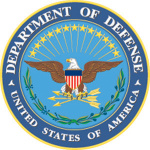- 업종: Government; Military
- Number of terms: 79318
- Number of blossaries: 0
- Company Profile:
Command responsible for recommendations to the joint force commander on the allocation and employment of Army forces within a combatant command.
Industry:Military
Commander subordinate to an area/regional air defense commander and responsible for air and missile defenses in the assigned sector. Exercises authorities delegated by the area/regional air defense commander.
Industry:Military
Command authority that may be exercised by commanders at any echelon at or below the level of combatant command. Operational control is inherent in combatant command (command authority) and may be delegated within the command. Operational control is the authority to perform those functions of command over subordinate forces involving organizing and employing commands and forces, assigning tasks, designating objectives, and giving authoritative direction necessary to accomplish the mission. Operational control includes authoritative direction over all aspects of military operations and joint training necessary to accomplish missions assigned to the command. Operational control should be exercised through the commanders of subordinate organizations. Normally this authority is exercised through subordinate joint force commanders and Service and/or functional component commanders. Operational control normally provides full authority to organize commands and forces and to employ those forces as the commander in operational control considers necessary to accomplish assigned missions; it does not, in and of itself, include authoritative direction for logistics or matters of administration, discipline, internal organization, or unit training.
Industry:Military
Command decision establishing the maximum number of days that patients may be held within the command for treatment. Patients who, in the opinion of responsible medical officers, cannot be returned to a duty status within the period prescribed are evacuated by the first available means, provided the travel involved will not aggravate their disabilities.
Industry:Military
Command authority over assigned or attached forces or commands, or military capability or forces made available for tasking, that is limited to the detailed direction and control of movements or maneuvers within the operational area necessary to accomplish missions or tasks assigned. Tactical control is inherent in operational control. Tactical control may be delegated to, and exercised at any level at or below the level of combatant command. Tactical control provides sufficient authority for controlling and directing the application of force or tactical use of combat support assets within the assigned mission or task.
Industry:Military
Command and control system for Air Mobility Command’s mobility airlift and air refueling assets. Provides aircraft schedules, arrival and/or departure, and aircraft status data to support in-transit visibility of aircraft and aircrews.
Industry:Military
Combatant commander-controlled airlift assets deemed essential for providing air transportation in support of naval operations’ transportation requirements. This capability is intended to provide a balance and supplement to other airlift assets to ensure the Navy’s ability to respond to emergency and wartime requirements.
Industry:Military
Combatant commander authority to issue directives to subordinate commanders, including peacetime measures, necessary to ensure the effective execution of approved operation plans. Essential measures include the optimized use or reallocation of available resources and prevention or elimination of redundant facilities and/or overlapping functions among the Service component commands.
Industry:Military
Combat support operations and force-multiplying capabilities delivered from space systems to improve the effectiveness of military forces as well as support other intelligence, civil, and commercial users. The space force enhancement mission area includes: intelligence, surveillance, and reconnaissance; integrated tactical warning and attack assessment; command, control, and communications; positioning, navigation, and timing; and environmental monitoring.
Industry:Military
Collective self-defense is the act of defending other designated non-US forces. Only the President or Secretary of Defense may authorize US forces to exercise the right of collective self-defense.
Industry:Military
